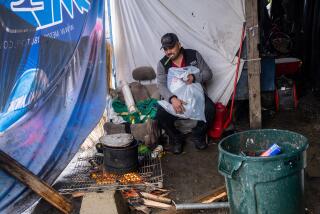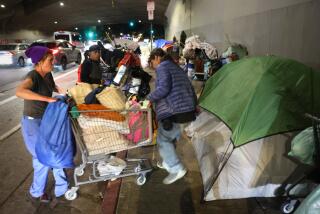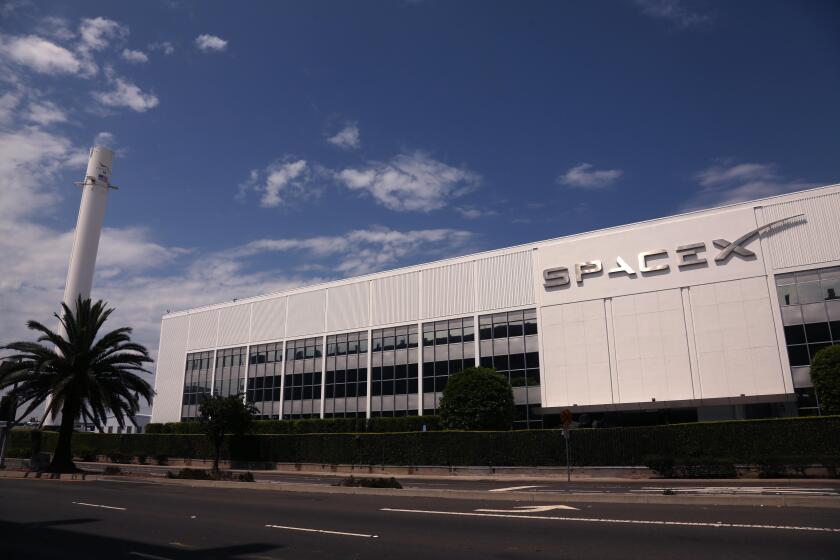Editorial: A new audit says housing for L.A.’s homeless costs too much and isn’t ready. Yeah, we knew that

At the heart of the strategy to combat homelessness in the city of Los Angeles is Proposition HHH, the $1.2-billion bond measure that was passed in 2016 to help finance the construction of 10,000 units of housing, mostly for the chronically homeless. Next month will mark three years since voters passed that measure.
However, an audit of the program released this week by City Controller Ron Galperin is a reminder that not one HHH-financed development has yet opened its doors. According to the report, all the projects have moved far too slowly and have cost far more than the city anticipated. Worse yet, Galperin says that the number of units that will be financed under the measure will not keep pace with the need for housing for the city’s growing homeless population, which currently numbers more than 36,000 people.
Of course, none of this is a surprise. We’ve watched the estimated costs rise ($531,000 is the median cost of building one of these units, according to the report) and the timeline slow even as the homeless population has grown. The program hit roadblocks early on, including the rising cost of construction and the painfully slow permitting process in the city. It took years — far too long, in our opinion — for city leaders to work on streamlining the processes (though, by most accounts, they have now made some progress.)
The report raises legitimate concerns about how this program was rolled out — but the money is now completely committed. The suggestion by Galperin that the city could possibly go back to developers who are in pre-construction phases of their projects and claw back some of their committed funds to use for building shelters seems unwise.
It’s true that the growth in the homeless population is such an urgent issue that it can’t wait for permanent housing to be built. The city needs temporary shelters.
But taking HHH money away from permanent supportive housing projects that are already in development and spending it to build shelters (which are not exactly cheap) is not the way to go. The city’s HHH strategy was the right one: to build housing that could blend into neighborhoods and give homeless people permanent homes. Shelters cannot take their place.
HHH has had problems, and local officials have been insufficiently responsive. More urgency and commitment is necessary if this problem is to be brought under control. But in the end we need more permanent housing, not less.
More to Read
A cure for the common opinion
Get thought-provoking perspectives with our weekly newsletter.
You may occasionally receive promotional content from the Los Angeles Times.






